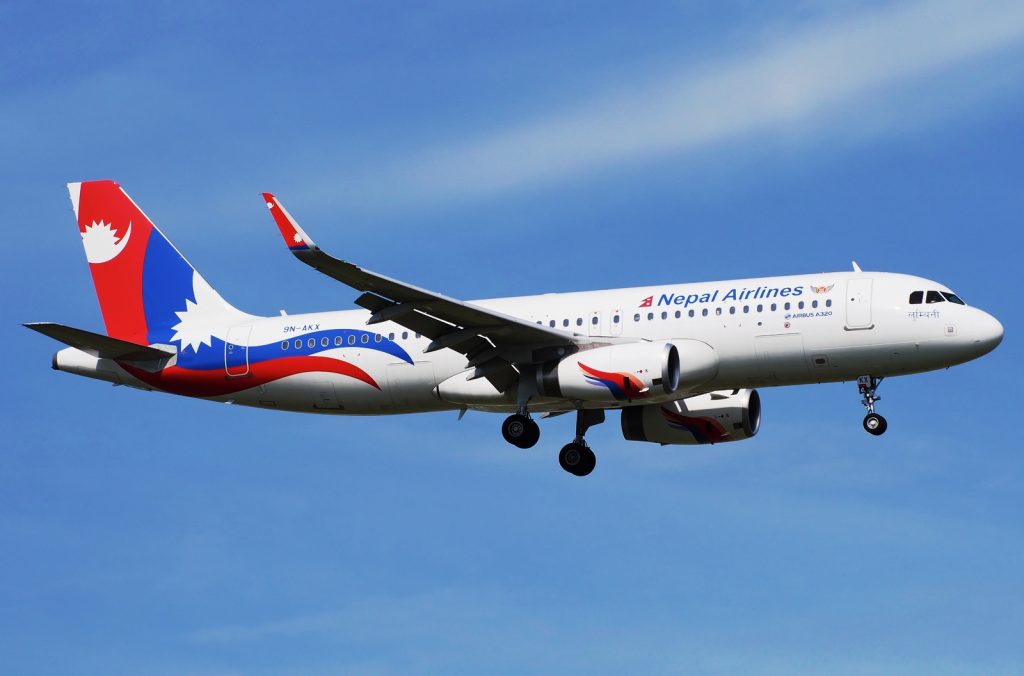KATHMANDU: International flights have been significantly affected as three out of the four aircraft operated by Nepal Airlines Corporation (NAC) are currently grounded, leading to widespread disruptions for passengers over the past two days.
The situation worsened on Tuesday when around 800 passengers in Kathmandu, Hong Kong, Doha, and Dubai were impacted by the grounding of NAC’s narrow-body aircraft, “Sagarmatha,” due to a hydraulic issue. The Civil Aviation Authority of Nepal (CAAN) ordered the grounding of the aircraft after the problem was detected, causing the cancellation of all scheduled flights involving the narrow-body aircraft.
NAC Spokesperson Ramesh Poudel stated that the airline has been striving to manage the crisis responsibly. After the “Sagarmatha” aircraft, carrying 156 passengers from Kathmandu to Hong Kong, was grounded, passengers were provided with accommodations at the Radisson Lounge for the day. To minimize inconvenience, NAC purchased tickets from other foreign airlines to ensure that passengers reached their destinations.
“There have been some problems due to the aircraft being grounded again. However, Nepal Airlines has not abandoned the passengers,” Poudel emphasized. “A responsible international airline upholds its values. We have arranged accommodation for the passengers in hotels and are making arrangements for their flights with other airlines to ensure they reach their destinations.”
According to Poudel, the passengers affected by the flight cancellations were accommodated in five-star hotels as required by international aviation regulations. He mentioned that, in line with these rules, NAC managed the passengers according to international standards following the last-minute flight cancellations. The disruptions and accommodations have resulted in a financial loss of approximately NPR 10 million for the airline on Tuesday alone.
NAC’s fleet currently consists of two narrow-body and two wide-body aircraft. However, one of the wide-body aircraft has been stranded in Italy for the past two months undergoing detailed maintenance (C-check). Poudel clarified that this aircraft is not permanently stranded and has completed all necessary inspections. It is scheduled to return to Nepal by the end of August. Meanwhile, the other wide-body aircraft was sent to Italy on Wednesday evening for its C-check, further straining NAC’s limited resources.
The challenges extend beyond international flights, with domestic operations also affected. Of the two ‘Twin Otter’ aircraft used for domestic flights, only one is currently in operation. The other has been grounded for an extended period due to technical issues. NAC has assured that the problems with the grounded aircraft are temporary and that efforts are underway to resume regular flights as soon as possible.
Poudel acknowledged that while larger airlines with multiple aircraft can absorb the impact of one or two grounded planes without significant disruptions, the NAC’s limited fleet makes such issues more challenging. He pointed out that the root cause of the current difficulties is the lack of sufficient aircraft within the NAC.
The grounding of these aircraft underscores the urgent need for NAC to expand and modernize its fleet to prevent future disruptions and ensure reliable service for its international and domestic passengers. As the airline works to bring its grounded aircraft back into operation, passengers are left hoping for a swift resolution to the ongoing challenges.

